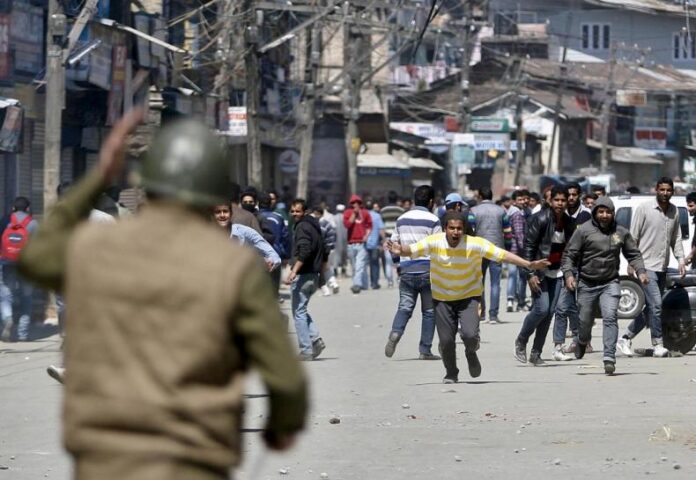In the intricate dance of geopolitics, the voices of the marginalized often fade into the
cacophony of power and policy. An Indian barrister’s poignant appeal to Pakistan exposes the
grave human rights violations under the Bharatiya Janata Party (BJP) regime in Indian
Illegally Occupied Jammu and Kashmir (IIOJK). This heartfelt plea highlights the BJP’s
systematic oppression and aggressive policies that have intensified the suffering of
Kashmiris. The region is witnessing unchecked abuses and a deepening humanitarian crisis
under Prime Minister Narendra Modi’s rule, characterized by a stark disregard for
international human rights norms. Despite the political complexities, the barrister’s appeal
resonates as a clarion call for justice, urging Pakistan to champion the cause of the oppressed
and amplify the silenced cries of those enduring relentless repression under India’s right-wing
government.
The conflict over Kashmir has been a persistent source of tension between India and Pakistan
since the partition in 1947. The region has endured decades of violence, political turmoil, and
human rights abuses. With the rise of the BJP and Narendra Modi’s ascension to power, the
situation in Kashmir has worsened. The BJP’s hardline stance and nationalist agenda have led
to increased militarization and suppression of dissent in the region. The abrogation of Article
370 in August 2019, which revoked Kashmir’s special status, marked a significant escalation,
stripping Kashmiris of their autonomy and subjecting them to direct central rule. This move
was widely criticized by human rights organizations and international bodies, as it further
entrenched the Indian government’s control over the region and exacerbated the already
volatile situation.
Under the BJP regime, human rights violations in IIOJK have reached alarming levels.
Reports from credible international organizations detail extrajudicial killings, enforced
disappearances, torture, and illegal detentions. The Armed Forces Special Powers Act
(AFSPA) grants sweeping powers to Indian security forces, leading to widespread abuse and
impunity. Kashmiris live under constant surveillance, with curfews, internet blackouts, and
severe restrictions on freedom of speech and assembly becoming routine. The everyday life
of Kashmiris is marred by fear and oppression, as basic human rights are systematically
denied. The situation in IIOJK is a stark reminder of the human cost of political conflict and
the urgent need for international intervention to protect the rights and dignity of the Kashmiri
people.
The international community’s response to the crisis in IIOJK has been tepid at best. While
some nations and human rights organizations have condemned the actions of the Indian
government, the global response has been largely muted. Strategic interests and geopolitical
alliances often take precedence over human rights concerns, leading to a lack of substantial
action. Despite numerous reports and appeals, the plight of Kashmiris remains inadequately
addressed on the international stage. The failure of the international community to hold India
accountable for its human rights abuses is a glaring omission that undermines the credibility
of global human rights institutions and their commitment to justice and equality.
Historically, Pakistan has positioned itself as a staunch supporter of the Kashmiri cause,
advocating for their right to self-determination. In response to the barrister’s appeal, Pakistan
has the opportunity to strengthen its advocacy for Kashmiris on the global stage. By
leveraging diplomatic channels, engaging with international human rights organizations, and
raising awareness about the crisis in IIOJK, Pakistan can play a pivotal role in seeking justice
for the oppressed. Moreover, Pakistan can highlight the broader human rights issues within
India to further its case. It is crucial for Pakistan to continue its efforts to highlight human
rights abuses and push for international intervention. By doing so, Pakistan can contribute to
a more just and equitable world order, where human rights are respected and upheld for all
individuals.
The human rights crisis in IIOJK demands urgent global attention and action. The appeal
underscores the need for international solidarity and accountability in addressing the
injustices faced by Kashmiris. It is imperative that the international community steps up to
hold the BJP regime accountable for its actions and support the struggle for human rights and
dignity in Kashmir. Only through collective efforts can the silenced voices of the oppressed
be heard and their rights restored. The international community must recognize that the fight
for human rights is universal and that every effort must be made to ensure justice and equality
for all, regardless of political, ethnic, or gender affiliations.



